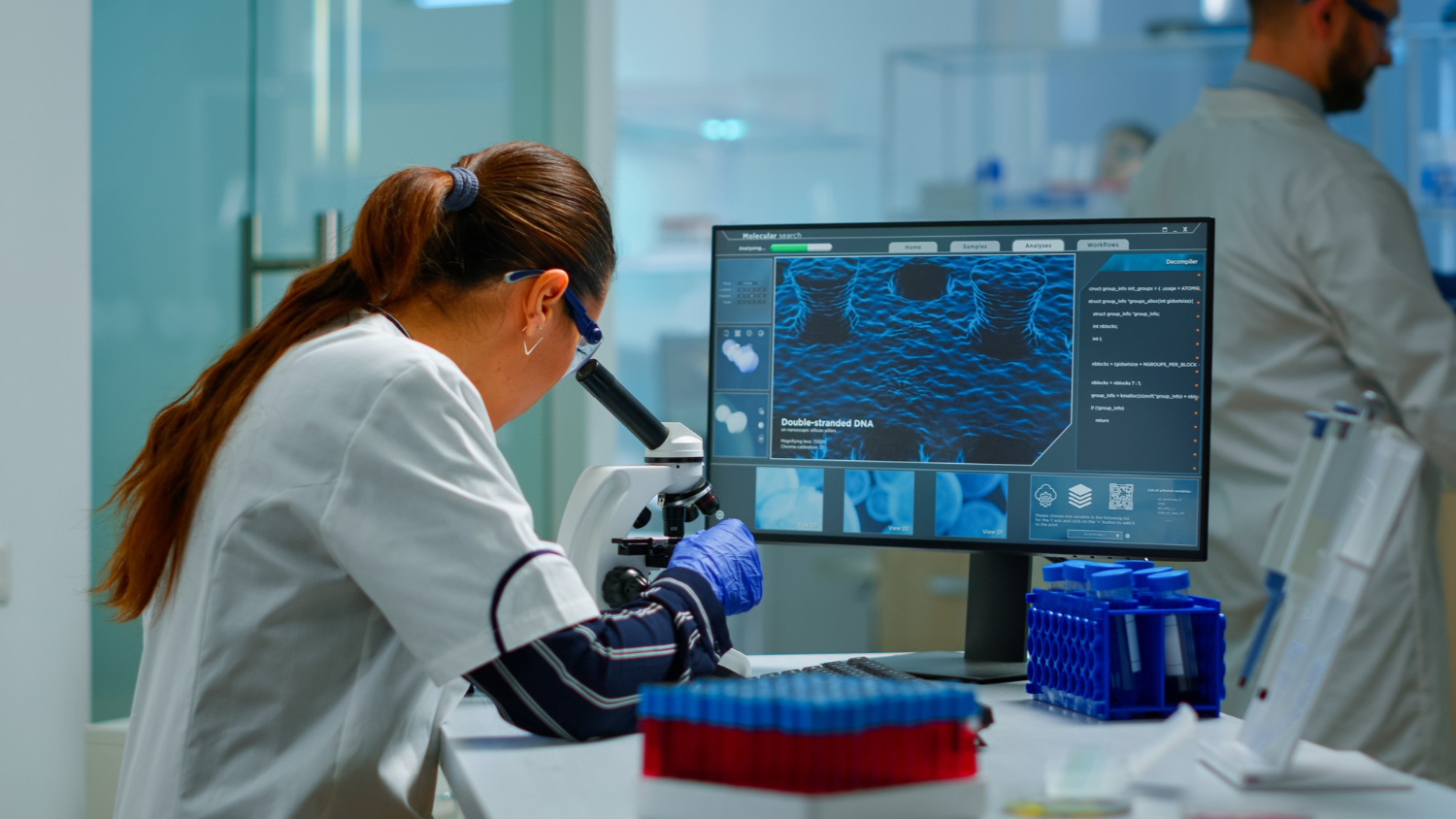In the modern era of genomics, personalized medicine, and big data, the demand for professionals who can interpret complex biological data is growing rapidly. One of the most sought-after roles in this space is that of a Bioinformatics Analyst. This unique career blends biology, computer science, and statistics to help researchers and healthcare professionals make sense of biological information.
If you have a background in life sciences and an interest in data, becoming a Bioinformatics Analyst could be a smart and rewarding career choice.
🧬 What is Bioinformatics?
Bioinformatics is an interdisciplinary field that develops and applies computational tools to analyze biological data. This includes DNA sequencing, protein structure analysis, gene expression data, and more.
A Bioinformatics Analyst uses software, algorithms, and data analysis techniques to:
- Decode genetic information
- Identify disease-causing mutations
- Discover new drug targets
- Support agricultural and environmental studies
🎓 Educational Pathways to Become a Bioinformatics Analyst
To start your career in bioinformatics, a strong foundation in biology and computer science is essential.
➤ Undergraduate Level:
- B.Sc. in Bioinformatics
- B.Sc. in Biotechnology / Biology / Computer Science + Bioinformatics Certifications
➤ Postgraduate Level:
- M.Sc. in Bioinformatics / Computational Biology
- M.Tech in Bioinformatics or related fields
➤ Doctorate (Optional for Research Careers):
- Ph.D. in Bioinformatics / Genomics / Systems Biology
➤ Online Certifications:
- Coursera – Bioinformatics Specialization (University of California, San Diego)
- edX – Bioinformatics MicroMasters (University of Maryland)
- NCBI – Tools and Tutorials
- EMBL-EBI Training
💼 Career Opportunities for Bioinformatics Analysts
| Job Role | Responsibilities |
| Bioinformatics Analyst | Analyze genomic and proteomic data |
| Computational Biologist | Build models for biological systems |
| Genomics Data Scientist | Use big data tools for sequencing data |
| Clinical Bioinformatician | Support diagnosis and treatment decisions |
| Biotech Research Associate | Work in labs analyzing biological datasets |
| Database Developer (Biology) | Manage and update biological databases |
Industries Hiring Bioinformatics Experts:
- Pharmaceutical Companies
- Healthcare & Diagnostics
- Agricultural Biotechnology
- Research Institutes & Universities
- Bioinformatics Startups
- Government Research Bodies (like ICMR, CSIR, NIH)
🧠 Skills Required
To become a successful Bioinformatics Analyst, you should develop:
- Strong Biological Knowledge (genetics, cell biology, molecular biology)
- Programming Skills (Python, R, Perl, Java)
- Data Analysis & Statistics
- Familiarity with Tools (BLAST, FASTA, Bioconductor, GenBank, Galaxy)
- Knowledge of Databases (NCBI, PDB, Ensembl)
- Understanding of AI & Machine Learning (for advanced applications)
📈 Future Scope of Bioinformatics
The global bioinformatics market is expected to grow beyond $25 billion by 2030 due to the explosion in genomics research, precision medicine, and drug discovery.
Future growth areas include:
- AI in genomics
- Personalized medicine
- CRISPR gene editing
- Pandemic and disease modeling
- Sustainable agriculture
📚 Useful Resources
- 🔗 NCBI Bioinformatics Tools
- 🔗 Ensembl Genome Browser
- 🔗 EBI Bioinformatics Resources
- 🔗 Coursera Bioinformatics Courses
- 🔗 BioStars Forum – Community Q&A
- 🔗 Nature Jobs – Bioinformatics
📢 Disclaimer
This blog is intended for informational purposes only. Course names, certification requirements, and job roles may vary by region and institution. Please refer to the official websites of educational providers and employers for the most accurate and up-to-date information.









